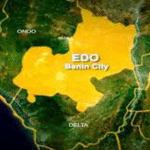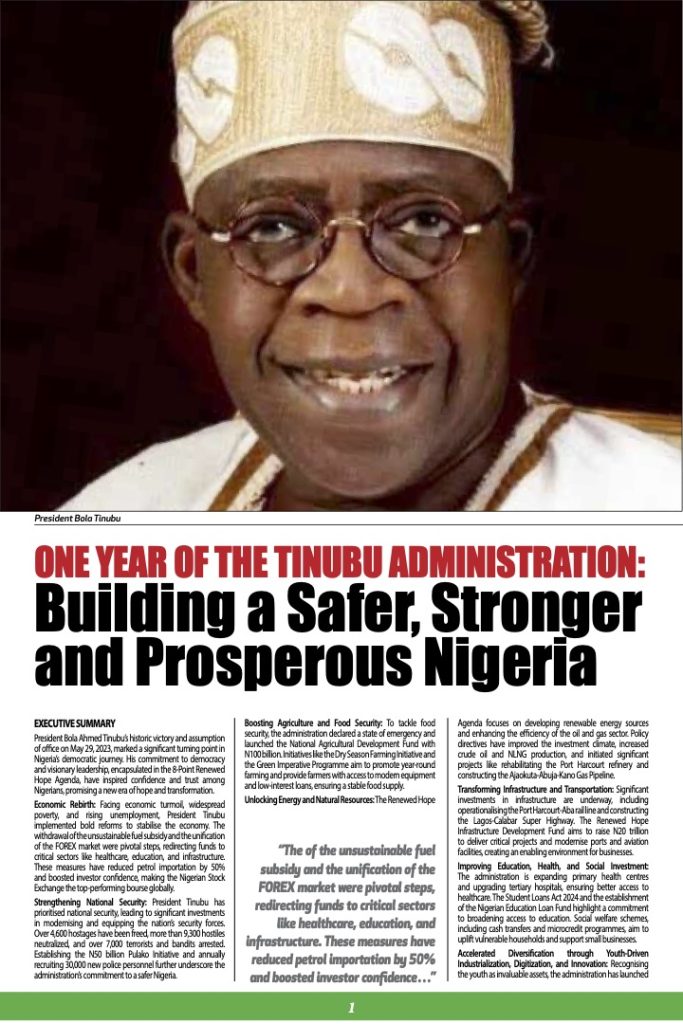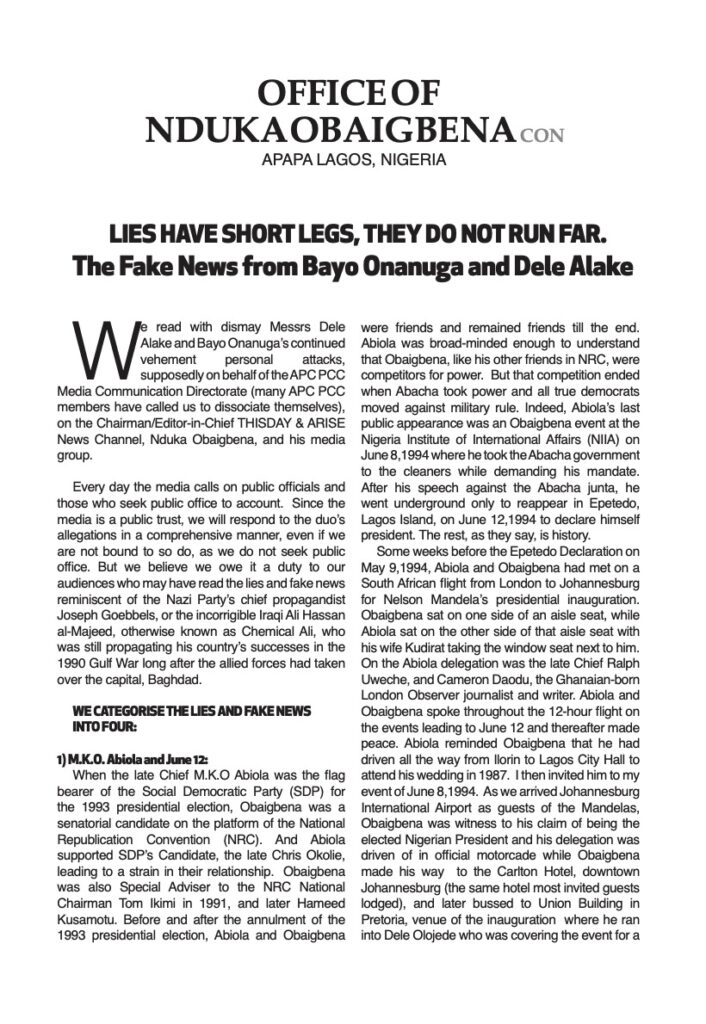Latest Headlines
MUCH ADO ABOUT SYSTEM OF GOVERNMENT

The problem is not with the form of government – but with the operators
A non-partisan group of eminent Nigerians, ‘The Patriots’, recently urged President Bola Tinubu to convene a National Constituent Assembly to produce “a people’s democratic constitution” for the country. Led by former Commonwealth Secretary-General, Emeka Anyaoku, the group said Nigeria’s pluralism needed to be properly addressed. “Those pluralistic countries that failed to address their basic challenge of pluralism through federal constitution have ended up disintegrating. Examples of that are Yugoslavia and Czechoslovakia. And here in Africa, Sudan,” said Anyaoku after their meeting with Tinubu. “And we put some proposals to the president and urged him to send an executive bill to the National Assembly; a bill that will call for two essential measures. One, the convening of a National Constituent Assembly to be mandated to produce a new draft constitution.”
Meanwhile, in a repeat of what happened in 2018 when a bill sponsored by 71 members to amend the 1999 Constitution of Nigeria to reintroduce the parliamentary system of government passed a second reading in the House of Representatives before it eventually fizzled out, 60 members recently proposed a similar bill to return the country to the parliamentary system. According to the lawmakers, as opposed to the presidential system of government that we currently practice in Nigeria, the parliamentary system promotes inclusion and collectiveness “which is critical to equality of income distribution and opportunities.” They also rehashed some other advantages that were highlighted in the past.
Without prejudice to the position of different groups on the state of the nation, the challenge of democratic governance in Nigeria has nothing to do with the system of government or the constitution being operated. The real problem is in the disposition of the political actors at all levels. Besides, there is nothing new in most of the ideas being floated either by the ‘The Patriots’ or some lawmakers. The same ideas have been mooted several times in the past. Under the current dispensation, there have been conferences that produced reports that were never implemented.
On the system of government, we must recall that Nigeria practised parliamentary system from the pre-independence era in 1954 until the post-independence coup d’etat of 1966. However, after 13 years of military interregnum, the military government opted to jettison the parliamentary system and adopted a presidential system of government for the Second Republic era which started in 1979. It was modelled after the American presidential system where power is separated among the three arms of government as against the parliamentary system where power is fused between the executive and the legislature. Successive attempts at democratisation have followed the same pattern.
In Nigeria today, the real problem is with the operators, not the system. Unlike what obtains in other climes, where people seek elective positions to add value to the system and raise the living standard of their people, our politicians would rather pre-occupy themselves with what they can benefit from the system. It is therefore proper to blame the corrupt few bent on massive looting of our commonwealth than whatever may be the drawbacks in the presidential system. Many politicians are undermining the system. And as long as greed pervades the political scene, changing the system of government or rewriting the constitution will make no difference.
While those who seek public offices are expected to position their country for optimal growth and advancement, our own leaders have enthroned a system that is lacking in both transparency and accountability. Thus while we subscribe to the position that the current structure of Nigeria does not work for the people, changing the system without changing the mindset of the operators will amount to a mere exercise in futility. We believe that the major problem we have in the country is the absence of good governance at all levels of government. Merely changing from presidential to parliamentary system or holding another constitutional conference will hardly address that challenge.

















